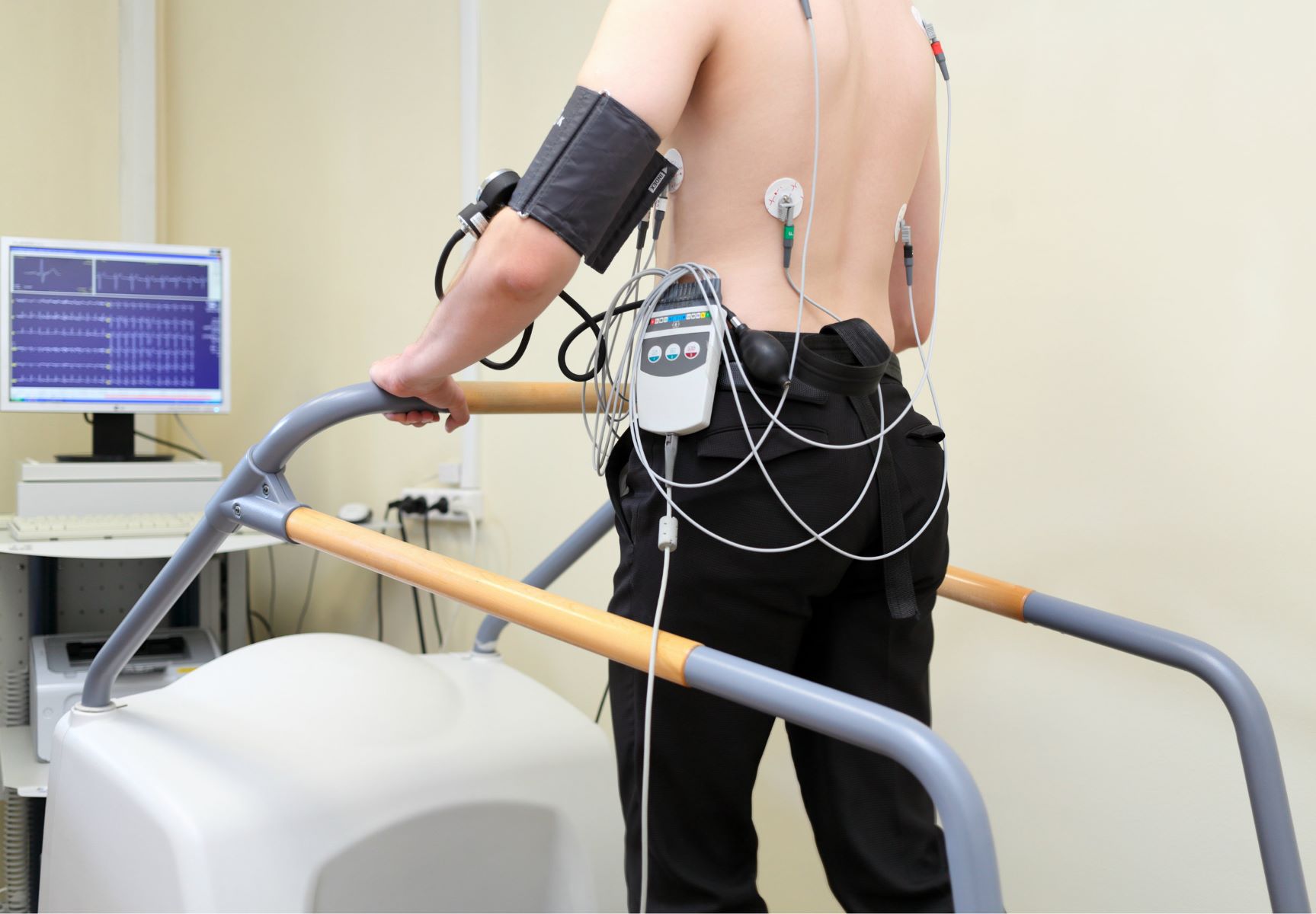Home>Misc>Featured>How Does Caffeine Help Athletic Performance


Featured
How Does Caffeine Help Athletic Performance
Modified: August 19, 2023
Discover how caffeine, a popular ingredient found in featured athletic supplements, can enhance your performance and boost your endurance levels.
Introduction
The relationship between caffeine and athletic performance has long been a topic of interest among athletes, trainers, and researchers. Caffeine, a natural stimulant found in various foods and beverages, has been consumed for centuries to boost alertness and energy levels. In recent years, it has gained significant attention for its potential performance-enhancing effects on athletes.
Caffeine is commonly consumed in the form of coffee, tea, energy drinks, and even supplements. Its ability to stimulate the central nervous system can provide numerous benefits to athletes, such as increased endurance, improved focus, and reduced fatigue during physical activities. However, it is important to understand how caffeine works in the body and the optimal timing and dosage for maximum effectiveness.
In this article, we will delve into the science behind caffeine and its impact on athletic performance. We will explore the effects of caffeine on the body, the benefits it offers to athletes, and the potential risks associated with its consumption. Whether you are a professional athlete or a recreational fitness enthusiast, understanding how caffeine can optimize your performance can be a game-changer.
It is crucial to note that while caffeine can provide various advantages, it is not a magic solution for success. Proper training, nutrition, and recovery remain the cornerstones of athletic performance. However, when used strategically and in moderation, caffeine can be a valuable tool to enhance and maximize your athletic potential.
Join us as we embark on this journey of exploring the fascinating effects of caffeine on athletic performance. By gaining a deeper understanding of this natural stimulant and its potential impact, you can make informed decisions to optimize your training and achieve your fitness goals.
Understanding Caffeine
Caffeine is a natural compound classified as a stimulant. It belongs to a group of substances known as methylxanthines and is found in various plants, including coffee beans, tea leaves, cacao beans, and kola nuts. When consumed, caffeine binds to adenosine receptors in the brain and blocks the actions of adenosine, a neurotransmitter involved in regulating sleep and wakefulness.
When adenosine is blocked, other neurotransmitters, such as dopamine and adrenaline, are released in higher amounts. This leads to increased alertness, improved focus, and heightened energy levels. Additionally, caffeine stimulates the release of stored fatty acids, enhancing fat oxidation and providing an additional fuel source for the body during physical exertion.
The effects of caffeine can vary depending on the individual’s tolerance, metabolism, and body weight. For some individuals, a small dose of caffeine can provide a significant boost, while others may require higher amounts to experience similar effects. It’s important to note that caffeine is a psychoactive substance, and excessive consumption can lead to adverse effects, such as restlessness, anxiety, and disrupted sleep patterns.
Caffeine is absorbed quickly by the body, with its peak concentration in the bloodstream occurring approximately 30 to 60 minutes after consumption. The half-life of caffeine, which is the time it takes for the body to eliminate half of the ingested caffeine, ranges from three to five hours. Therefore, it is important to consider the timing of caffeine intake to optimize its effects during physical performance.
It’s worth mentioning that caffeine can be addictive, and regular consumers may develop a tolerance to its effects over time. This means that higher doses may be required to achieve the same level of stimulation. Thus, it is recommended to cycle caffeine use or take breaks to prevent tolerance buildup and ensure its effectiveness.
In the next sections, we will explore how caffeine affects the body during physical performance and the specific benefits it offers to athletes. By understanding the mechanisms behind caffeine’s effects, you will be better equipped to make informed decisions about its utilization to enhance your athletic endeavors.
Effects of Caffeine on the Body
Caffeine has a wide range of effects on the body, thanks to its ability to influence the central nervous system and various physiological processes. When caffeine is consumed, it is rapidly absorbed into the bloodstream and distributed throughout the body, impacting various organs and systems.
One of the primary effects of caffeine is its stimulant effect on the central nervous system. By blocking adenosine receptors in the brain, caffeine increases alertness, enhances cognitive function, and reduces the perception of fatigue. This can be particularly beneficial for athletes, as it can help them stay focused, mentally sharp, and perform at a higher level during strenuous exercise.
In addition to its effects on the brain, caffeine also stimulates the release of adrenaline, which is responsible for the “fight or flight” response. This leads to an increase in heart rate, blood pressure, and overall cardiovascular activity. As a result, caffeine can improve circulation and oxygen delivery to the muscles, enhancing endurance and performance during physical activities.
Caffeine has also been shown to enhance muscular strength and power. It does so by increasing the release of calcium ions in the muscle cells, which promotes better muscle contraction. This effect can be particularly useful for activities that require short bursts of intense effort, such as weightlifting or sprinting.
Furthermore, caffeine has been found to increase the rate of fat oxidation during exercise. By promoting the breakdown of stored fats, caffeine provides an additional fuel source for the body, sparing muscle glycogen and potentially extending endurance. This can be especially beneficial for endurance athletes who rely on sustained energy output.
Additionally, caffeine has diuretic properties, which means it can increase urine production. While this may lead to increased fluid loss, studies have shown that habitual caffeine consumers do not experience significant dehydration during exercise. However, it is important to maintain proper hydration when consuming caffeine, especially during prolonged physical exertion.
It is important to note that the effects of caffeine can vary among individuals based on factors such as body weight, metabolism, and tolerance. Some individuals may be more sensitive to the effects of caffeine, while others may require higher doses to elicit the desired response. It is advisable to experiment with caffeine intake during training and assess its impact on performance to determine the optimal dosage for each individual.
Now that we have explored the effects of caffeine on the body, let’s delve into how caffeine specifically benefits athletes and their physical performance.
Caffeine and Physical Performance
Caffeine has long been recognized for its potential to enhance physical performance. Numerous studies have demonstrated its beneficial effects on endurance, strength, power, and overall athletic performance.
Endurance athletes, such as runners and cyclists, can greatly benefit from caffeine consumption. Studies have shown that caffeine can improve time trial performance, allowing athletes to maintain a higher intensity for a longer duration. This is attributed to caffeine’s ability to increase fat oxidation, spare glycogen stores, and reduce perceived exertion.
In addition to endurance sports, caffeine has shown promising results in enhancing anaerobic performance. It has been found to increase muscular strength, power, and explosive performance. This can be beneficial for athletes involved in activities like weightlifting, sprinting, and jumping. By improving muscular contraction and reducing fatigue, caffeine enables athletes to generate more force and achieve better performance outcomes.
Caffeine’s impact on cognitive function and focus also plays a role in enhancing physical performance. By reducing the perception of effort and improving mental alertness, caffeine enables athletes to push through challenging workouts and competitions. It can also enhance reaction time and decision-making abilities, leading to better performance in sports that require quick reflexes, such as tennis or football.
Furthermore, caffeine has been shown to improve overall exercise tolerance. It helps to delay the onset of fatigue, allowing athletes to maintain a higher level of performance for longer periods. This can be particularly advantageous in endurance events where pushing beyond one’s limits is crucial.
However, it is important to note that the effects of caffeine may vary among individuals. Factors such as genetics, tolerance, and timing of consumption can influence its effectiveness. Additionally, excessive amounts of caffeine can have negative effects, including restlessness, jitteriness, and gastrointestinal discomfort. It is recommended to experiment with caffeine intake during training to determine the optimal dosage and timing for each individual.
In the next section, we will explore the specific benefits of caffeine for athletes, including its impact on strength, fat loss, and mental focus.
Benefits of Caffeine for Athletes
Caffeine offers numerous benefits for athletes, making it a popular choice as a performance-enhancing supplement. From improved strength and endurance to enhanced mental focus, caffeine can significantly impact an athlete’s performance and training outcomes.
One of the primary benefits of caffeine for athletes is its ability to improve muscular strength and power. Studies have shown that caffeine consumption can increase muscle force production, allowing athletes to generate more power and perform at a higher intensity. This can be particularly advantageous in sports that require explosive movements, such as weightlifting and sprinting.
Caffeine also has a positive impact on endurance performance. By increasing fat oxidation and sparing glycogen stores, caffeine helps athletes maintain energy levels during prolonged exercise. This can delay the onset of fatigue and allow athletes to sustain a higher intensity for a longer duration. Additionally, caffeine has been shown to improve time trial performance, enabling athletes to achieve faster race times.
Furthermore, caffeine plays a crucial role in enhancing mental focus and cognitive function. It reduces the perception of effort and fatigue, allowing athletes to push through challenging workouts or competitions. Caffeine also improves reaction time and decision-making abilities, enabling athletes to make quick and accurate choices during high-pressure situations. This can be particularly beneficial in sports that require strategic thinking and rapid responses.
In addition to its impact on physical performance, caffeine has been found to aid in fat loss and weight management. It promotes the breakdown of stored fats, increasing fat oxidation during exercise. By utilizing fat as a fuel source, athletes can potentially improve body composition and achieve their desired weight goals.
Another advantage of caffeine is its potential to enhance recovery by reducing muscle soreness. Studies have suggested that caffeine can alleviate muscle pain and discomfort following intense exercise, allowing athletes to bounce back faster and train with greater frequency.
It’s important to note that the benefits of caffeine can vary among individuals. Factors such as tolerance, metabolism, and timing of consumption can influence its effectiveness. Additionally, the type and form of caffeine consumed, whether through coffee, tea, energy drinks, or supplements, may also impact its benefits.
In the following section, we will explore the optimal timing and dosage of caffeine for maximum performance benefits. Understanding how to properly incorporate caffeine into training and competition can help athletes reap the most advantages while minimizing potential risks and side effects.
Optimal Timing and Dosage of Caffeine
To maximize the performance-enhancing benefits of caffeine, it is essential to consider the timing and dosage of its consumption. By strategically planning when and how much caffeine to consume, athletes can optimize its effects while minimizing potential drawbacks.
The timing of caffeine intake is crucial for its effectiveness. Consuming caffeine too far in advance may result in its peak effects occurring before the activity, while consuming it too close to the workout or event may lead to potential gastrointestinal discomfort or inadequate absorption. Research suggests that consuming caffeine approximately 30 to 60 minutes before exercise can provide the optimal window for its performance-enhancing benefits to kick in.
The ideal dosage of caffeine can vary depending on individual factors such as body weight, tolerance, and sensitivity. A common recommendation is to aim for a dosage of 3 to 6 mg per kilogram of body weight. For example, a person weighing 70 kilograms would consume approximately 210 to 420 mg of caffeine. It is important to note that higher doses may not necessarily provide additional benefits and can increase the risk of side effects.
It is advisable to start with a lower dosage and gradually increase it to assess individual tolerance and response. Additionally, it is essential to be mindful of other sources of caffeine consumed throughout the day, such as coffee, tea, and energy drinks, as these can contribute to the overall caffeine intake.
In terms of form, caffeine can be consumed through various sources, including coffee, tea, energy drinks, and caffeine supplements. Each source may have different caffeine concentrations and absorption rates. It is important to choose a source that is well-tolerated and suits individual preferences.
It’s worth noting that certain individuals may be more sensitive to caffeine’s effects or experience adverse reactions. Factors such as genetics, medical conditions, and medications can impact how caffeine is metabolized in the body. Therefore, it is recommended to consult with a healthcare professional or sports nutritionist before incorporating caffeine into an athletic routine, especially if there are any underlying health concerns.
Planning and experimenting with timing and dosage is key to determining the optimal caffeine strategy for personalized performance enhancement. It is recommended to test different approaches during training sessions rather than on the day of an important competition or event.
In the next section, we will discuss potential side effects and risks associated with caffeine consumption, as well as strategies to mitigate those risks.
Potential Side Effects and Risks
While caffeine offers numerous benefits for athletes, it is important to be aware of the potential side effects and risks associated with its consumption. Understanding and mitigating these risks can help athletes make informed decisions to optimize their performance without compromising their well-being.
One of the most common side effects of caffeine is its stimulant effect on the central nervous system, which can lead to restlessness, anxiety, and increased heart rate. Some individuals may also experience jitteriness or difficulty sleeping, especially if caffeine is consumed too close to bedtime. It is important to monitor individual tolerance and adjust the timing and dosage accordingly.
Caffeine has diuretic properties, which can increase urine production and potentially lead to dehydration if fluid intake is not adequately maintained. It is crucial to prioritize proper hydration, especially during prolonged exercise or in hot environments, to prevent dehydration.
Consuming excessive amounts of caffeine can have detrimental effects on health. Extremely high doses can cause symptoms such as nausea, dizziness, and even irregular heartbeat. It is vital to adhere to recommended dosage guidelines and monitor individual tolerance to avoid these potential risks.
Individuals with certain health conditions or those taking specific medications should exercise caution when consuming caffeine. Conditions such as heart problems, high blood pressure, and gastrointestinal disorders may be exacerbated by caffeine consumption. It is advised to consult with a healthcare professional to determine the suitability and safety of caffeine consumption in such cases.
Moreover, caffeine withdrawal symptoms can occur when regular consumption is abruptly stopped. These symptoms can include headaches, irritability, fatigue, and difficulty concentrating. To prevent withdrawal symptoms, it is recommended to gradually reduce caffeine intake rather than quitting abruptly.
As with any supplement or dietary change, it is essential to be aware of individual responses to caffeine and monitor for any adverse effects. Keeping a close eye on how caffeine affects overall health, sleep patterns, and general well-being can help identify any potential issues and make adjustments if necessary.
In summary, while caffeine can offer significant benefits for athletic performance, it is important to recognize and manage the potential side effects and risks associated with its consumption. By practicing moderation, monitoring individual tolerance, and seeking guidance from professionals, athletes can harness the performance-enhancing benefits of caffeine while prioritizing their overall health and well-being.
Conclusion
Caffeine, a widely consumed natural stimulant, has shown great potential in enhancing athletic performance. Understanding the science behind caffeine and its impact on the body is crucial for athletes looking to optimize their training and achieve their fitness goals.
By blocking adenosine receptors and stimulating the central nervous system, caffeine helps increase alertness, improve focus, and reduce fatigue. It also promotes fat oxidation, enhances endurance, and improves muscular strength and power. These effects, combined with its impact on cognitive function, make caffeine a popular choice among athletes seeking a performance edge.
To fully leverage the benefits of caffeine, it is important to consider optimal timing and dosage. Consuming caffeine approximately 30 to 60 minutes before exercise allows athletes to experience its peak effects during physical activity. Tailoring the dosage to individual factors such as body weight and sensitivity is vital for achieving the desired performance-enhancing benefits while minimizing potential side effects.
While caffeine offers numerous benefits, athletes should be aware of the potential risks and side effects. Monitoring individual tolerance, staying properly hydrated, and consulting with healthcare professionals when necessary can help mitigate these risks. It is also important to note that caffeine is not a substitute for proper training, nutrition, and rest.
Incorporating caffeine strategically into an athletic routine can result in improved strength, endurance, mental focus, and overall performance. However, it is crucial to listen to your body and make adjustments as needed. Every athlete is unique, and finding the right balance and approach to caffeine consumption is key.
As you embark on your journey to enhance your athletic performance, consider utilizing caffeine as a tool to support your goals. Experiment with timing, dosage, and different sources of caffeine to find what works best for you. Stay mindful of potential risks and prioritize your overall well-being.
Remember, caffeine is just one piece of the puzzle. Consistency, proper training, nutrition, and recovery are still the foundation of success. By integrating caffeine strategically, you can harness its potential benefits and take your athletic performance to new heights.









